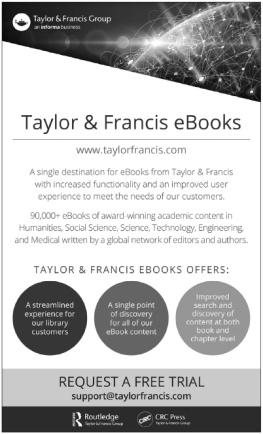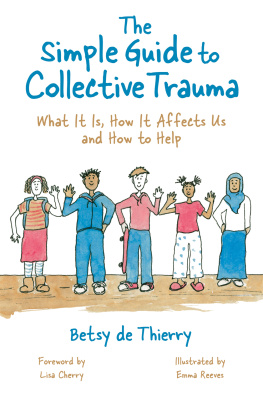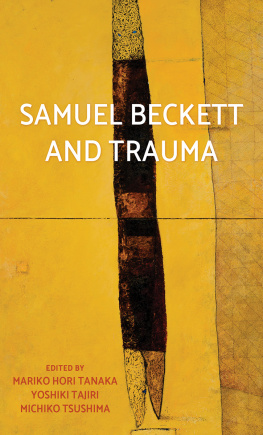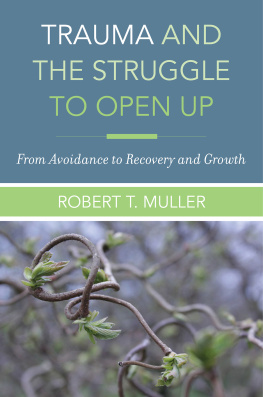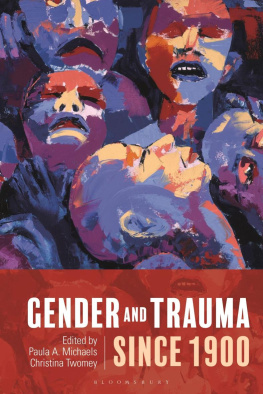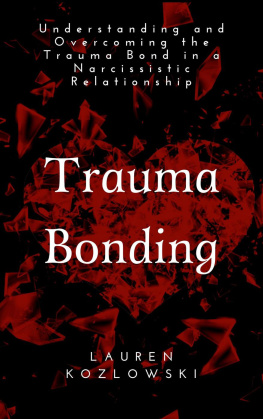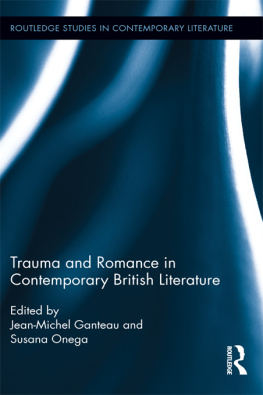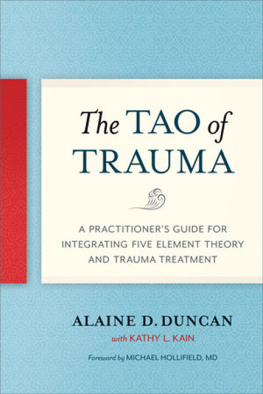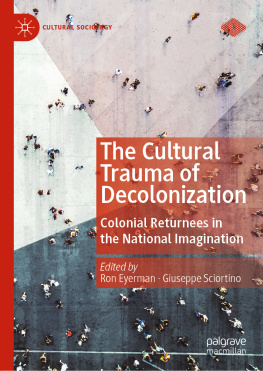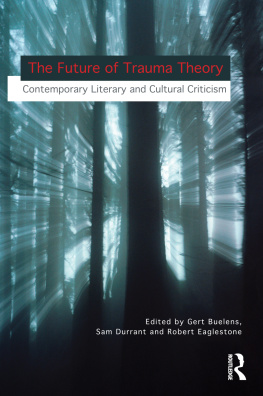TRAUMA
Trauma has become a catchword of our time and a central category in contemporary theory and criticism. In this illuminating and accessible volume, Lucy Bond and Stef Craps:
- provide an account of the history of the concept of trauma from the late nineteenth century to the present day
- examine debates around the term in their historical and cultural contexts
- trace the origins and growth of literary trauma theory
- introduce the reader to key thinkers in the field
- explore important issues and tensions in the study of trauma as a cultural phenomenon
- outline and assess recent critiques and revisions of cultural trauma research
Trauma is an essential guide to a rich and vibrant area of literary and cultural inquiry.
Lucy Bond is a principal lecturer in English literature at the University of Westminster, UK.
Stef Craps is a professor of English literature at Ghent University, Belgium.
THE NEW CRITICAL IDIOM
SERIES EDITOR: JOHN DRAKAKIS,UNIVERSITY OF STIRLING
The New Critical Idiom is an invaluable series of introductory guides to todayscritical terminology. Each book:
- provides a handy, explanatory guide to the use (and abuse) of the term;
- offers an original and distinctive overview by a leading literary and cultural critic;
- relates the term to the larger field of cultural representation.
With a strong emphasis on clarity, lively debate and the widest possible breadthof examples, The New Critical Idiom is an indispensable approach to key topics inliterary studies.
Fairy Tale by Andrew Teverson
Translation by Susan Bassnett
GothicSecond edition by Fred Botting
Narrative Second edition by Paul Cobley
ComedySecond edition by Andrew Stott
GenreSecond edition by John Frow
Colonialism/PostcolonialismThird edition by Ania Loomba
Adaptation and Appropriationsecond edition by Julie Sanders
The Aphorism and Other Short FormsBen Grant by Ben Grant
ModernismThird edition by Peter Childs
Reception by Ika Willis
The SublimeSecond edition by Philip Shaw
Satire by John T. Gilmore
Race by Martin Orkin with Alexa Alice Joubin
Trauma by Lucy Bond and Stef Craps
Childrens Literature by Carrie Hintz
PastoralSecond edition by Terry Gifford
For more information about this series, please visit:www.routledge.com/literature/series/SE0155
First published 2020
by Routledge
2 Park Square, Milton Park, Abingdon, Oxon OX14 4RN
and by Routledge
52 Vanderbilt Avenue, New York, NY 10017
Routledge is an imprint of the Taylor & Francis Group, an informa business
2020 Lucy Bond and Stef Craps
The right of Lucy Bond and Stef Craps to be identified as authors of this work has been asserted by them in accordance with sections 77 and 78 of the Copyright, Designs and Patents Act 1988.
All rights reserved. No part of this book may be reprinted or reproduced or utilised in any form or by any electronic, mechanical, or other means, now known or hereafter invented, including photocopying and recording, or in any information storage or retrieval system, without permission in writing from the publishers.
Trademark notice: Product or corporate names may be trademarks or registered trademarks, and are used only for identification and explanation without intent to infringe.
British Library Cataloguing in Publication Data
A catalogue record for this book is available from the British Library
Library of Congress Cataloging-in-Publication Data
A catalog record has been requested for this book
ISBN: 978-0-415-54041-4 (hbk)
ISBN: 978-0-415-54042-1 (pbk)
ISBN: 978-0-203-38306-3 (ebk)
For Alex, Karen, and Amber
This book has been a long time in the making, and we have incurred debts of gratitude to many people and institutions along the way. We want to thank our colleagues in the School of Humanities at the University of Westminster and the Department of Literary Studies and the Cultural Memory Studies Initiative at Ghent University for their valuable input. We are grateful also to Michael Rothberg and Jessica Rapson for their support from the outset of this project. Moreover, we wish to thank Ghent University and the Flemish Research Council (FWO) for the sabbatical leave that allowed Stef to write part of the book, and Roger Luckhurst and Katia Pizzi for hosting him as a visiting scholar at Birkbeck and the School of Advanced Study, University of London during that time. We want to particularly acknowledge our students, on various courses we have taught at Westminster, Ghent, and UCLA over the years, for helping us think through many of the issues explored here. Polly Dodson and Zoe Meyer have been extremely patient and encouraging editors, as has the series editor, John Drakakis. Many thanks to all three of them. Most of all, though, we owe a debt of gratitude to our partners, Alex Hensby and Karen Van Holm, for cheering us on during the writing of this book, and to Stefs daughter Amber, for providing welcome distractions. The book is dedicated to them. Our hope for it is that, in some small way, it will help readers navigate and make sense of the troubled world in which we live, which is haunted not only by the spectres of past atrocities but also by the ghosts of devastations that are ongoing or yet to come.
The New Critical Idiom is a series of introductory books which seeks to extend the lexicon of literary terms, in order to address the radical changes which have taken place in the study of literature during the last decades of the twentieth century. The aim is to provide clear, well-illustrated accounts of the full range of terminology currently in use, and to evolve histories of its changing usage.
The current state of the discipline of literary studies is one where there is considerable debate concerning basic questions of terminology. This involves, among other things, the boundaries which distinguish the literary from the non-literary; the position of literature within the larger sphere of culture; the relationship between literatures of different cultures; and questions concerning the relation of literary to other cultural forms within the context of interdisciplinary studies.
It is clear that the field of literary criticism and theory is a dynamic and heterogeneous one. The present need is for individual volumes on terms which combine clarity of exposition with an adventurousness of perspective and a breadth of application. Each volume will contain as part of its apparatus some indication of the direction in which the definition of particular terms is likely to move, as well as expanding the disciplinary boundaries within which some of these terms have been traditionally contained. This will involve some re-situation of terms within the larger field of cultural representation, and will introduce examples from the area of film and the modern media in addition to examples from a variety of literary texts.
On 18 March 2008, Democratic Illinois Senator Barack Obama gave a speech at the Constitution Center in Philadelphia. The address was intended to cool the controversy that had erupted in the wake of an ABC News investigation into the sermons of Reverend Jeremiah Wright, who had repeatedly denounced the United States for its long-standing racial violence against people of colour. In one excerpt from 2003, Wright raged, God damn America for treating our citizens as less than human. God damn America for as long as she acts like she is God and she is supreme (qtd in Ross and El-Buri 2008). Even more contentiously, Wright argued that Americas own terrorism in Hiroshima and Nagaski, more than fifty years earlier, had led to the terrorist attacks of 11 September 2001. Obama acknowledged that Wright, who was his former pastor and an unpaid campaign adviser, had made a profound mistake in his divisive claims. However, he cautioned, race is an issue that I believe this nation cannot afford to ignore; Understanding this reality requires a reminder of how we arrived at this point. As William Faulkner once wrote, The past isnt dead and buried. In fact, it isnt even past (2008).

